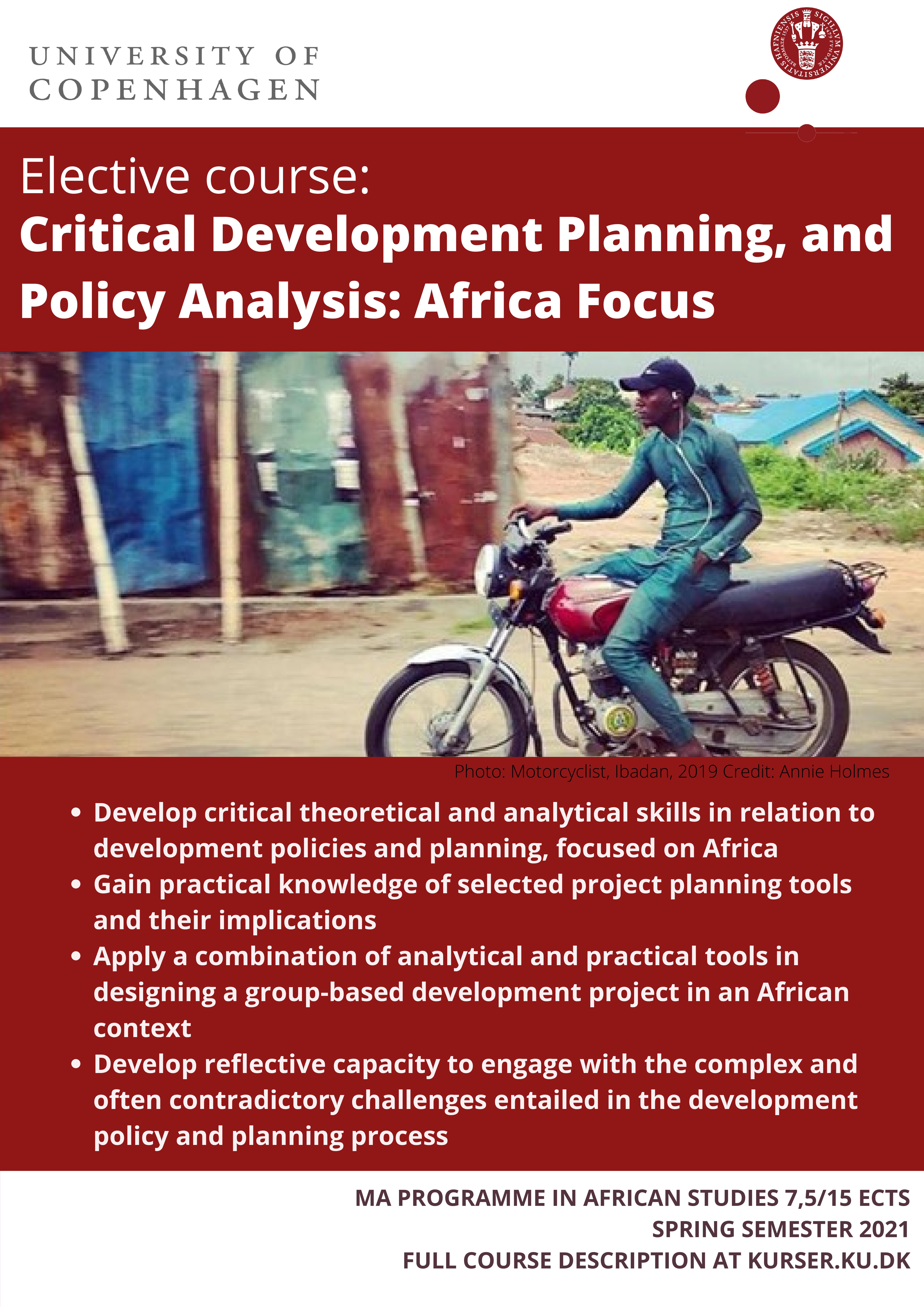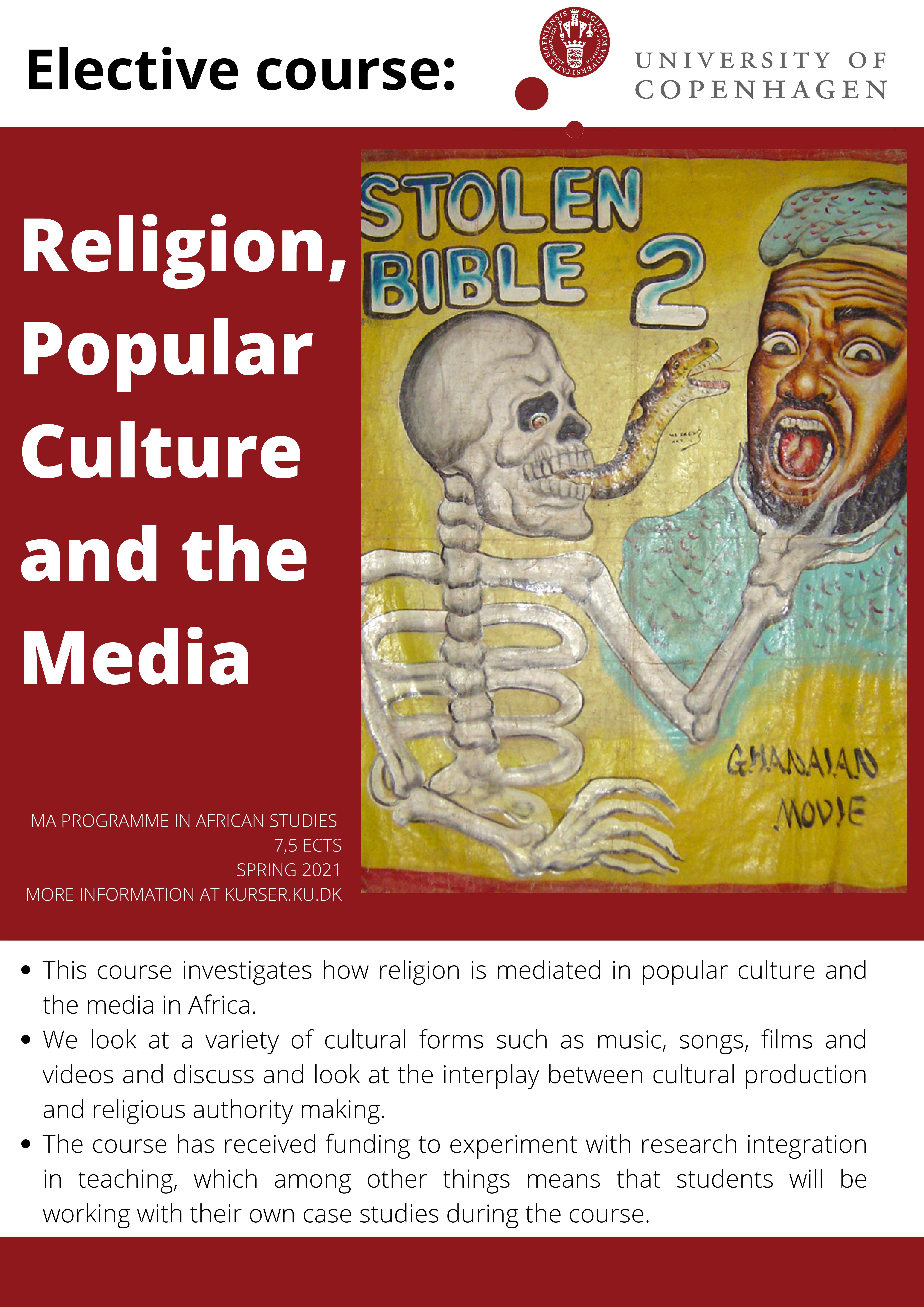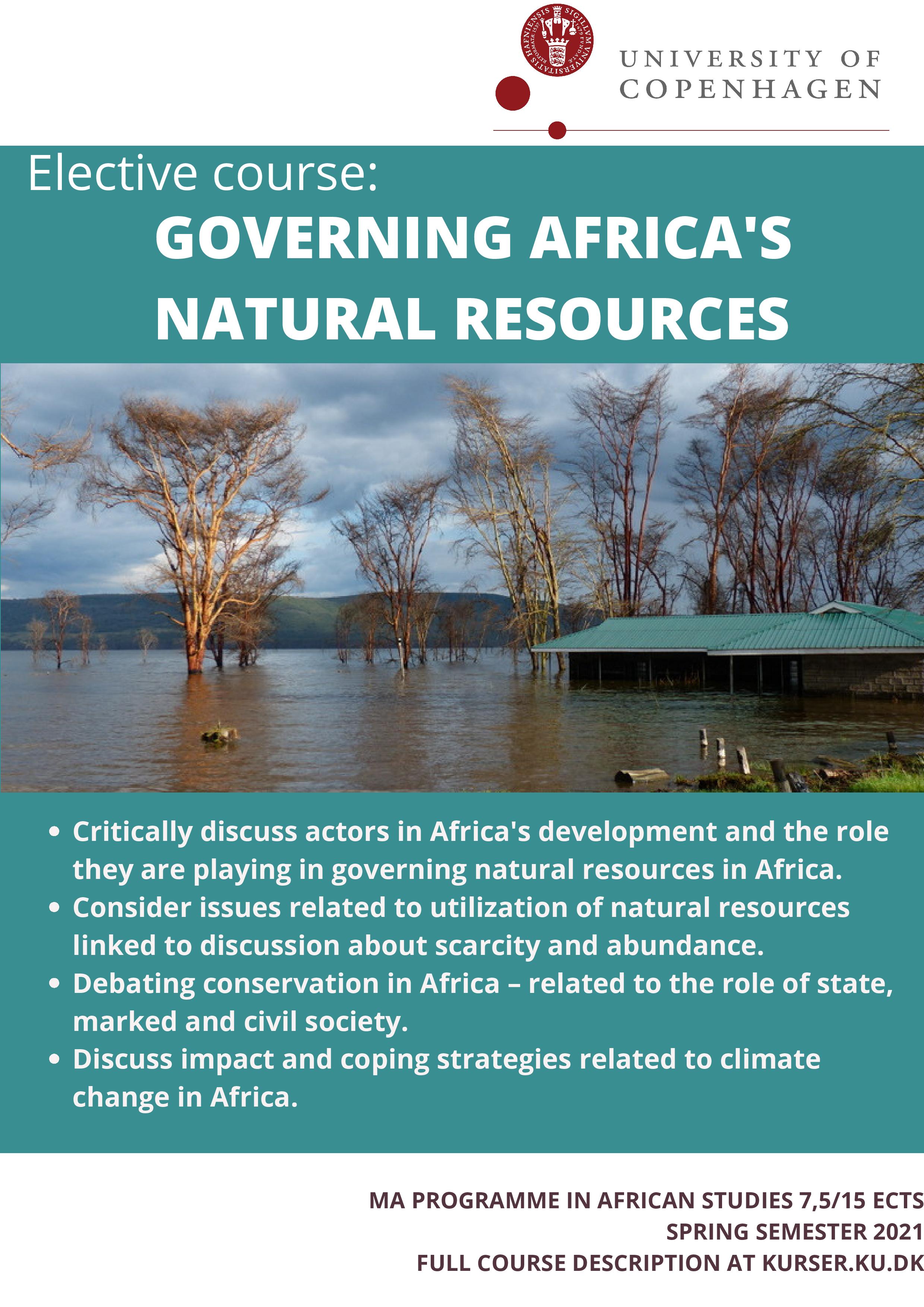Three new courses at CAS next semester, open to all applicants
At CAS we are excited to offer three elective courses next semester that are open for both credit students, professional masters students and part time (open university) students.
1. The course "Critical Development Policy Planning and Analysis: Africa Focus"
This course aims to provide students with a combination of critical analytical and practical skills for engaging with the challenges of development planning and policy analysis in relation to African contexts.
It will include at least three dimensions: firstly, it will introduce critical theoretical approaches to the very notion of doing ‘development’, to the study of policy, and to the politics of planning; secondly, it will prepare students for analysing different kinds of development planning and policies in their historical-political-social-economic contexts; and thirdly, it will provide students with critically reflective yet practical skills for planning concrete development projects and undertaking critical readings of policy.
Students will be encouraged to draw on and share their own previous experience of working in ‘development’ settings where relevant but such experience is not a pre-requisite for the course.
Read more about the course and how to sign up

2. The course "Religion, Popular Culture and the Media"
How are religious ideas, moralities and world making expressed in popular culture and the media in Africa? What does popular culture as genre offer as a lens to study religion in Africa? Popular culture as a product of the ordinary and as an expression of the creativity of everyday life engages with religious imaginaries and moralities. In this course, we discuss how religion is mediated through a variety of popular cultural forms of expression such as music, songs, films and videos, social media and magazines. In addition, we look at how popular culture and media function as platforms for authority making and the making of political influence. This course will also provide an insight into the ways in which religions are appropriated for socioeconomic mobility.
This course has been awarded funding from the university to experiment with enhancing students’ skills with research integration. It provides a unique opportunity for students to engage in alternative ways of learning and creating knowledge. During the course, students are encouraged to actively define and discuss their own cases within the theme of the course: how religious ideas, religious morality and religious worldviews are expressed in popular culture and through various media in Africa and African diaspora. The course aims at creating communication, collaboration and involvement between students, researchers and people involved in the specific cases. Furthermore, the course explores different channels of conveying and communicating results, for example through social media and other channels. A number of international scholars in the field will take part in the course.
Read more about the course "Religion, Popular Culture and the Media" and how to sign up

3. The course "Governing Africa's Natural Resources"
If economic growth, poverty reduction and industrial development are top priorities for most African countries, why should local communities, NGO's, policy makers in African government and donor countries worry about governing natural resources? The answer is simple: natural resources provide soil to grow food, and water for drinking, irrigation etc. Forests and rivers provide food to eat or export and raw materials for a wide range of industries. In many African countries, natural landscapes and wildlife reserves are major factors in attracting tourism. So governing natural resources is about safeguarding food, livelihoods, export opportunities, recreation etc.
The primary objectives of this course are as follows: (1) Debating governance of natural resources at and between local, national, and international levels; (2) develop understanding of key concepts including theories related to governing natural resources; and (3) Discuss specific cases from Africa related to utilization and/or conservation of Africa's natural resources.
Read more about the course "Governing Africa's Natural Resources" and how to sign up

